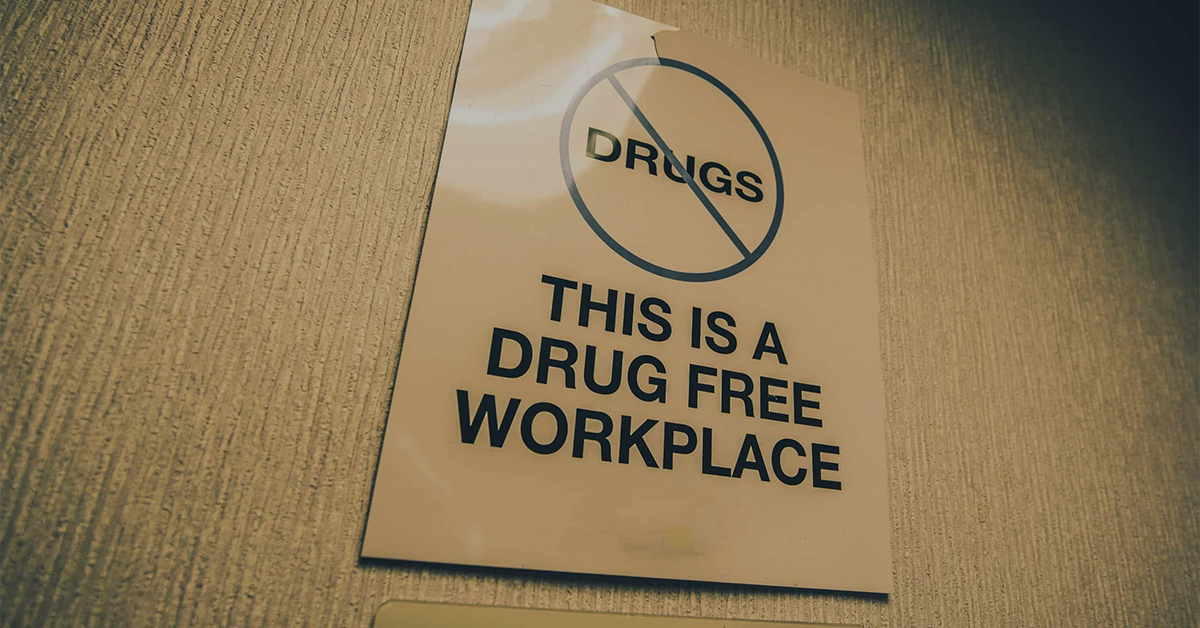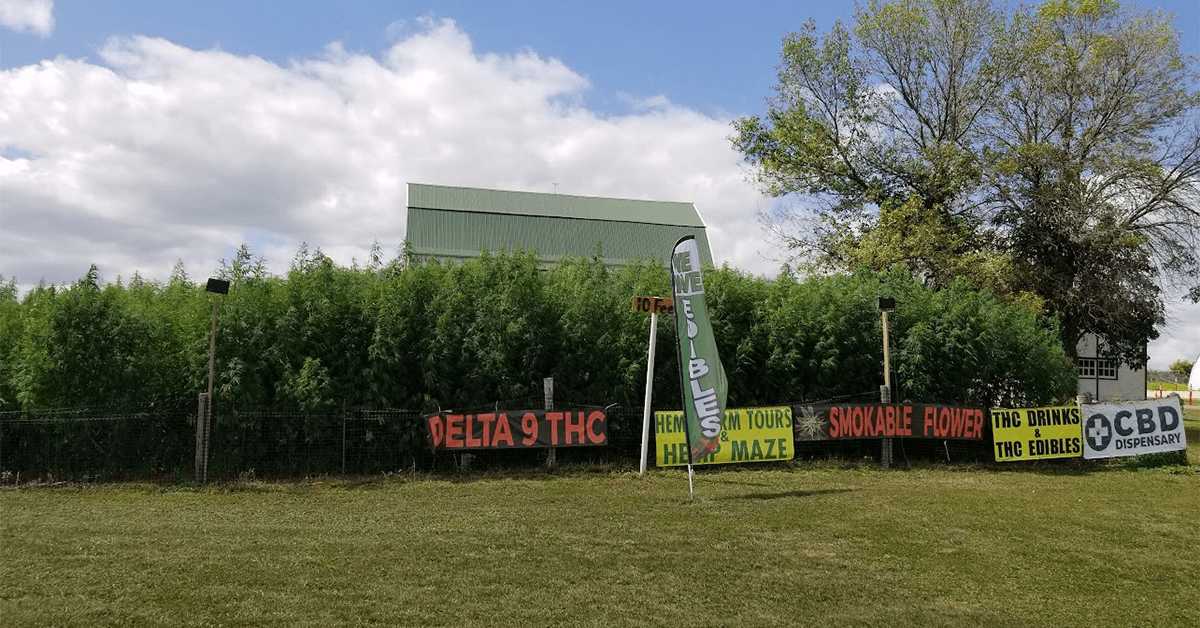Michigan's Progressive Approach to Cannabis: An Evolving Employment Landscape

The shifting sands of marijuana legislation and public sentiment have spurred a nationwide debate. From coast to coast, states grapple with aligning their policies to the evolving legal status and societal perceptions of cannabis. While many regions oscillate in their stances, Michigan has emerged as a focal point of progressive change in the realm of employment-related cannabis policies. To truly understand the state's pioneering steps, we must first explore its historical perspective on cannabis, especially in the backdrop of its employment landscape.
Historically, Michigan, like much of the United States, maintained a stringent view on cannabis, particularly concerning its implications in the workplace. The age-old argument was straightforward: cannabis use could impair job performance, posing risks to both the individual and those around them. However, as the winds of change blew, states began to reevaluate their standpoints, with Michigan at the forefront of this transformation.
In this article, we'll delve deep into Michigan's paradigm shift, reflecting on its past, assessing the present, and speculating on its potential future impact.
Table of Contents
- A Paradigm Shift in Michigan's Employment Policies
- Detailed Insights from Key Figures
- Classification of State Jobs: Test-Designated vs. Non-Designated
- Michigan in the National Context
- Looking Ahead: Implications and Predictions
- The Road to Progressive Policies is Not Without Its Bumps
- Conclusion: The Confluence of Rights, Safety, and Progress
A Paradigm Shift in Michigan's Employment Policies
Over the years, Michigan's employment policies pertaining to cannabis stood as a reflection of the broader societal apprehensions. A state job applicant testing positive for cannabis faced an exclusion period of three long years. In the eyes of the state, cannabis was not merely a recreational substance but a potential hindrance to job performance, safety, and professionalism.
However, as knowledge about cannabis use deepened and public opinion shifted, it became apparent that this strict policy might be more punitive than protective. The realization that an occasional user wasn't necessarily an impaired worker led to the rethinking of such exclusionary practices.
Fast forward to the present, and the landscape is starkly different. With the unanimous endorsement of the Michigan Civil Service Commission, the state has cast aside its age-old practice. Now, the majority of state job applicants can breathe a sigh of relief, knowing that cannabis consumption during their personal time won't hinder their professional aspirations. Under the revised policy, most applicants will bypass the once-dreaded cannabis screening tests entirely.
This change wasn't merely symbolic but a clear acknowledgment that Michigan's employment policies needed to evolve. By removing the shadow of cannabis from the hiring process for many roles, the state signaled its commitment to redefining workplace norms and embracing a more modern perspective on cannabis use.
This shift did more than just update a policy; it set a precedent for other states, encouraging them to question their own practices and consider the broader implications of cannabis screening in a world where its recreational use is increasingly accepted.
Detailed Insights from Key Figures
As with any significant policy shift, Michigan's decision to revise its cannabis testing regulations didn't happen in a vacuum. It was shaped, driven, and responded to by key figures in the state and national discourse. Their insights offer a window into the nuances and underpinnings of the decision.
Commission Chair Jose Bolger
An instrumental figure in the process, Bolger's comments reflect the state's balanced perspective. He remarked, "While cannabis won't be screened during the hiring process, it's imperative that employees remain sober from both alcohol and marijuana during working hours." This statement underscores the primary objective behind the new policy: recognizing personal freedom while maintaining workplace professionalism. Bolger further clarified, "Tests may still be conducted if an employee is suspected to be under the influence," emphasizing the state's commitment to preserving workplace safety and integrity.
Paul Armentano, Deputy Director of NORML
Representing a national perspective on marijuana laws, Armentano's insights shed light on the broader implications of Michigan's decision. Lauding the policy adjustment, he stated, "Urine tests for detecting past cannabis use are invasive and discriminatory. Moreover, they fail to create a safer workplace since they cannot accurately identify individuals who are currently under the influence." His remarks touch on a critical flaw in traditional testing methods — their inability to distinguish between past use and present impairment.
Armentano's critique of urine tests highlights a significant point in the cannabis screening debate. By focusing on past use, the tests may inadvertently penalize responsible users while failing to identify those who may genuinely be impaired at work. This insight further amplifies the rationale behind Michigan's shift: an aim to foster a fair, just, and safe working environment.
Through the perspectives of these key figures, we gain a deeper understanding of the motivations and implications of Michigan's progressive policy changes. It's evident that this shift is grounded in an evolving understanding of cannabis, its effects, and the balance between individual rights and collective safety.
Classification of State Jobs: Test-Designated vs. Non-Designated
While Michigan's revised stance on cannabis screening paints a picture of sweeping reform, it's essential to recognize the granularity of the decision. Not all state jobs are treated equally under this new policy, reflecting a nuanced approach that considers the unique demands and responsibilities of different roles.
Test-Designated Positions
Some professions demand a zero-tolerance approach due to the nature of their duties. These roles are now classified as "test-designated," implying that they will continue to necessitate cannabis screening. This category predominantly comprises roles where public safety and critical decision-making are paramount, such as:
- Driving: Whether it's the transportation of goods or people, drivers have a responsibility to be completely unimpaired.
- Law Enforcement: Officers not only need to make split-second decisions but also represent the enforcement of state and local regulations.
- Healthcare Services: Those who work in direct patient care or critical medical roles cannot afford the slightest impairment, given the health and lives at stake.
Non-Designated Positions
Conversely, many roles have been classified as "non-designated." Applicants for these positions will no longer face the hurdle of pre-employment cannabis screening. This group encompasses a wide range of professions where cannabis use outside of working hours is deemed unlikely to impact job performance.
This bifurcation of state jobs underscores Michigan's commitment to balancing progressive ideals with practical concerns. By distinguishing between test-designated and non-designated roles, the state acknowledges the diverse nature of its workforce and the varying responsibilities each role demands.
However, such classifications aren't without their challenges. As societal understanding of cannabis evolves, so too might the categorizations. Future discussions may further refine or expand these classifications based on emerging research, public sentiment, and practical experience.
Michigan in the National Context
While Michigan's recent policies on cannabis employment screening are undoubtedly groundbreaking within its borders, they form part of a broader tapestry of change unfolding across the U.S. The nation is in the midst of a seismic shift in how it views and manages cannabis, especially in the professional realm.
Leading the Pack
Michigan joins an elite cadre of states and cities that are reassessing their stances on pre-employment cannabis testing. With its revised policy, Michigan stands alongside:
- States: Nevada, Washington, California, Connecticut, Washington DC, Montana, New Jersey, New York, and Rhode Island. Each of these states has enacted measures to curb or limit marijuana testing for current and prospective employees.
- Cities: Urban centers like Atlanta, Baltimore, Kansas City, Philadelphia, and St. Louis have similarly curtailed pre-employment cannabis screening, signaling a metropolitan shift in attitudes.
A Matter of Practicality
Beyond the legislative aspect, there's a pragmatic reason behind these policy changes. As noted earlier, a significant proportion of young adults have reported using marijuana. With unemployment rates fluctuating and the ongoing quest for talented candidates, excluding a large section of potential workers based solely on cannabis use, especially in regions where it's legal, seems counterintuitive.
Safety and Sobriety Still Paramount
It's crucial to note that while these jurisdictions, including Michigan, are liberalizing their views on off-the-job cannabis use, there remains a unanimous emphasis on workplace safety. No state or city is endorsing or permitting on-the-job impairment. Instead, the focus is shifting from penalizing off-the-clock personal choices to ensuring employees are sober and competent during work hours.
Setting a Precedent
Michigan's stance, combined with the moves of these states and cities, sets a precedent for others. The narrative isn't merely about cannabis but about a changing understanding of personal freedom, workplace rights, and the need for updated policies in a rapidly evolving society.
This national context is pivotal. As more states and cities observe the outcomes of such policy shifts in pioneering regions like Michigan, it may prompt further reconsideration, research, and eventual reforms elsewhere.
Looking Ahead: Implications and Predictions
Michigan's pioneering step in re-evaluating its employment screening policies for cannabis use has set the wheels of change in motion, not just for the state but potentially as a model for others to follow. As we reflect on this paradigm shift, it's essential to contemplate what lies ahead for Michigan and, by extension, the U.S.
Broader Acceptance of Legal Cannabis Use
As more states adopt lenient policies towards cannabis consumption, both in personal and professional contexts, we can anticipate a growing societal acceptance of legal marijuana use. Over time, the distinction between consuming alcohol responsibly and using cannabis might blur, with both seen as personal choices made outside of working hours.
Refined Testing Methods
The current challenge with cannabis tests, as pointed out by experts, is their inability to differentiate between past use and present impairment. We might see advancements in drug testing technology that focus more on real-time impairment rather than historical use. This would ensure that workplace safety is not compromised while also preventing undue penalties for past, off-the-clock consumption.
Economic Implications
Companies and states that adopt more liberal cannabis screening policies might attract a broader talent pool. This could have positive economic implications, with companies having access to diverse skill sets and potentially increasing their productivity and innovation.
Legal Challenges and Refinements
As with any policy shift, there may be legal challenges ahead. Employers, employees, and unions might raise concerns, leading to refinements in the policy or even court rulings that further shape the employment landscape regarding cannabis use.
Federal Re-evaluation
With a growing number of states liberalizing their cannabis policies, there could be pressure on the federal government to re-evaluate its stance on cannabis, especially its classification as a Schedule I substance. Such a change at the federal level would have sweeping implications for employment policies nationwide.
Continuous Monitoring and Feedback
Michigan, and other states that follow suit, will need to continuously monitor the effects of their revised policies. Feedback from employers, employees, and the general public will be crucial in refining and optimizing these policies to ensure they serve the dual purpose of respecting personal freedom and ensuring workplace safety.
In conclusion, Michigan's revised cannabis employment screening policies signify more than just a change in rules. They mark a pivotal moment in the evolving relationship between workplaces, personal choices, and societal norms. As we look to the future, it's clear that this journey of re-evaluation and refinement is just beginning, with many more chapters yet to unfold.
The Road to Progressive Policies is Not Without Its Bumps
Even as Michigan and several other jurisdictions take progressive strides in adapting their workplace policies regarding cannabis use, it's essential to acknowledge that such shifts do not come without challenges and criticisms. As with any significant policy change, there are bound to be diverse viewpoints and concerns.
Safety Concerns
One of the primary criticisms revolves around workplace safety. Even though the intention behind such policies is not to endorse on-the-job impairment, detractors worry that blurring the lines might inadvertently lead to increased accidents, especially in roles that demand high levels of attention.
Inconsistencies in Policy Implementation
With state jobs now classified as either test-designated or non-designated, there may be grey areas or roles that don't fit neatly into one category. This might lead to inconsistencies in policy implementation and potential disputes.
Perception of Endorsement
While the policy aims to differentiate between personal, off-the-clock use and workplace impairment, there are concerns that such shifts might be misconstrued as an endorsement of regular cannabis use, potentially influencing younger populations.
Interplay with Federal Laws
Given that cannabis remains a Schedule I substance under federal law, there are complications for businesses and entities that interact with federal agencies or receive federal funding. This can lead to a challenging dual policy environment, wherein state laws conflict with federal expectations.
Ethical Implications
Some argue that by not testing for cannabis, employers might be indirectly endorsing a habit that not everyone views as entirely benign. These critics stress the potential health implications of regular cannabis use and believe that employers should promote holistic wellness.
Potential for Abuse
A common concern is that, without the fear of testing, some individuals might indulge more frequently, leading to potential abuse. Critics argue that removing deterrents might not be the best approach for public health.
Addressing the Concerns
While these challenges and criticisms are valid, proponents of the policy change argue that:
- The emphasis remains on workplace sobriety. Testing for actual impairment, rather than past use, is a more accurate gauge of workplace readiness.
- Continuous monitoring and feedback mechanisms can help refine the policy and address inconsistencies.
- Education campaigns can help address misconceptions and ensure that the public understands the policy's intent and limitations.
In essence, while the road to progressive cannabis policies in the workplace is paved with good intentions, it is essential to navigate it with caution, awareness, and a willingness to adapt based on real-world feedback and outcomes.
Conclusion: The Confluence of Rights, Safety, and Progress
The transition from stringent cannabis testing to more relaxed, nuanced policies mirrors a greater societal evolution. As we conclude our exploration, let's consider the broader implications and the intricate balance policymakers are aiming for.
Recognizing Personal Rights:
- Beyond Cannabis: At the heart of these reforms lies a fundamental question about individual autonomy. If someone is engaging in a lawful activity during their personal time, which doesn't impact their professional obligations, should it be a matter of employer concern?
- Parallel to Alcohol: Just as employees are trusted to consume alcohol responsibly outside work hours, the same trust extends to legal cannabis use, emphasizing responsible consumption over outright prohibition.
Ensuring Workplace Safety:
- Nuanced Approach: Progressive policies underscore the importance of sobriety during working hours. By categorizing roles based on risk and responsibility, the reforms aim to ensure safety without curtailing personal freedoms.
- Maintaining Professional Standards: Regardless of these changes, the onus remains on employees to uphold their professional commitments and not compromise workplace integrity.
Reflecting Societal Evolution:
- Adaptive Governance: As societal views on cannabis evolve, it's only fitting that our institutional policies adapt in tandem. The reforms highlight a governance model that's responsive to the changing values of its constituents.
- Economic Rationale: In a competitive job market, employers are realizing the economic inefficiencies of sidelining candidates based on legal activities outside of work. The policy shifts acknowledge this reality.
Exercising Caution
While the journey towards more inclusive policies is commendable, it's essential to remain vigilant. Continuous assessment, stakeholder feedback, and adaptability will be paramount in ensuring these policies achieve their desired outcomes without unintended repercussions.
Setting Precedence for the Future
Michigan's decisions, along with those of other progressive states and cities, set a precedent for jurisdictions contemplating similar reforms. Their experiences, both positive and challenging, will offer invaluable lessons.
In essence, Michigan's policy evolution around cannabis is more than just about a specific substance. It's a testament to the delicate interplay of individual rights, societal norms, workplace safety, and adaptive governance. As we navigate this complex terrain, the ultimate aim remains clear: fostering a society that values personal freedoms while ensuring collective well-being and professional excellence.
Share this article:
Spotted a typo, grammatical error, or a factual inaccuracy? Let us know - we're committed to correcting errors swiftly and accurately!








 Helpful Links
Helpful Links